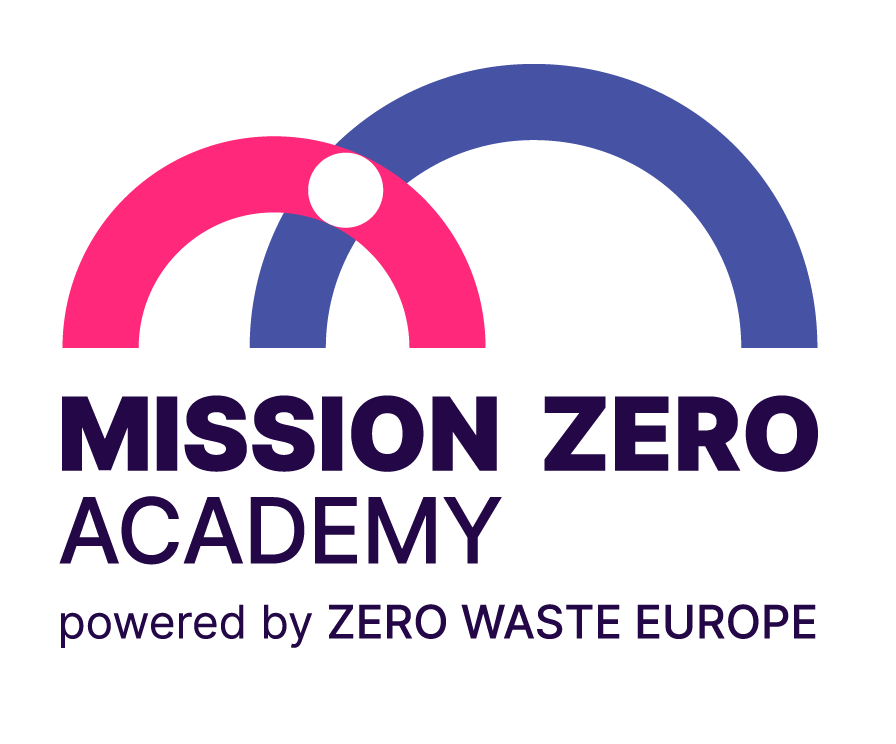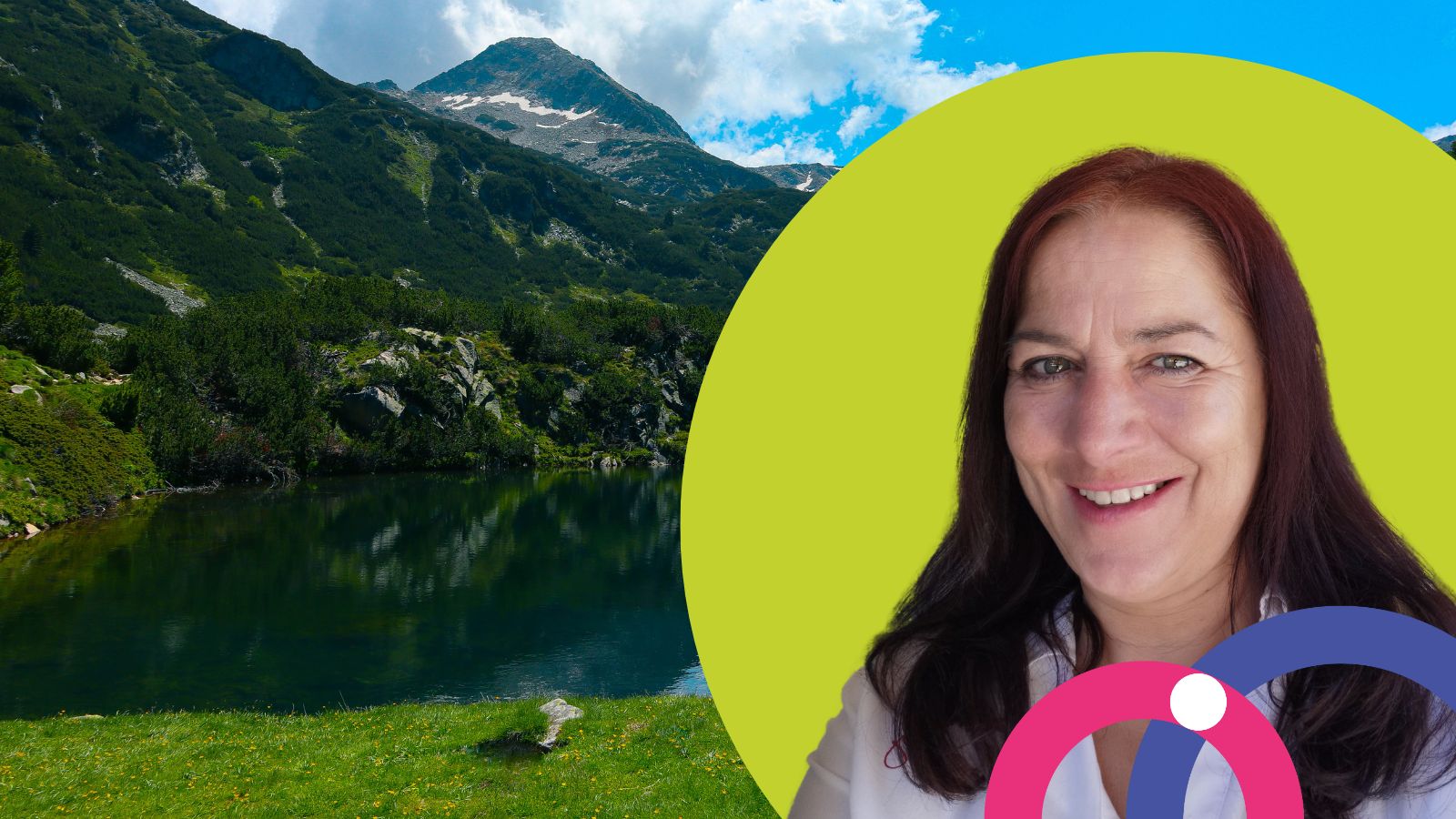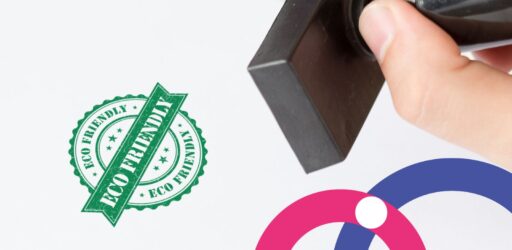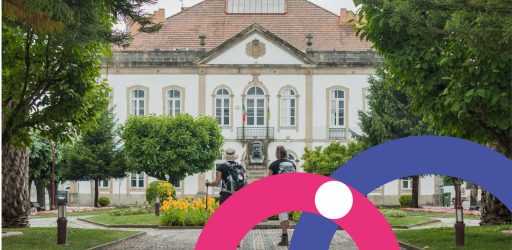The Ribno Alpine Resort is a family-run establishment located near Bled, offering a unique and special experience for travelers. Situated at the end of an idyllic village, adjacent to a spruce forest, the resort provides a peaceful and relaxing environment for visitors. The surroundings offer ample opportunities for outdoor activities, making it an ideal destination for those who like to stay active. Over the past 6 years, the resort has been committed to sustainable development practices and demonstrates a caring attitude towards the environment. In 2022, the establishment was awarded the Zero Waste Hotel Certification, marking it as the first and only hotel and glamping site in Slovenia and Europe to receive this recognition.
In a recent Driving Change interview, we had the opportunity to sit down with Katarina Strgar, the Co-owner and Marketing Manager of Ribno Hotel. She shared the inspiring story of how Ribno Hotel became the very first Zero Waste Certified Hotel in Europe and discussed their goal of achieving a 3rd star this year.
To start our interview, Katarina, please tell us a bit about yourself and your background.
That’s a question I usually prefer to avoid… I love to work, I love to learn and explore, so I do a lot of different things because my curiosity knows no bounds. There is just not enough time to do everything I want to do. I have a master’s degree in human rights protection, but I don’t put that knowledge into practice. This is where my degree in tourism comes in handy, and even more so my many years of practice in the tourism industry. I gained it in the casino business, both at home and abroad, first as a croupier, then for a long time in marketing. Now my main concern and way of life is to take care of the family resort, where my husband and I are developing a story, we have only dreamed of for a long time. It is a story of accommodation where the guest feels as if they are always in authentic contact with nature, a comfortable stay for the guests, a well-maintained environment, friendly staff, sustainability and being first in the field, cycling as part of sustainable mobility, making and selling our own products from renewable sources, involving our guests to participate in the ZW story and much more… all this is now our main concern and responsibility.
How did the whole story begin? What was the motivation behind transitioning to a zero waste business?
In 2017, we embarked on a journey to implement zero waste solutions in the hospitality industry in Slovenia. Thanks to a group of Italian experts from Sorrento, we gained valuable insights and decided to be the first in our country to pursue this path. With Ekologi brez meja (EBM) support, we set out to achieve the first Zero Waste Hotel certificate in Slovenia in 2018. Our action plan was initially set for two years. To our surprise, we were able to achieve our goals in just about 8 months. This journey has taught us that we can achieve more than we ever imagined possible with determination and collaboration.
The transition to zero waste began with a focus on sustainability and reducing waste production. To achieve this goal, plastic and other materials that caused unnecessary waste were eliminated. As a start, single-packaged breakfast items were replaced with glass containers, allowing guests to use regular cutlery and small serving bowls. This was the first step towards our transition to a more sustainable future.
We’ve been on a remarkable journey, putting together the pieces of a puzzle that has taken us 4 years to complete to achieve the European Zero Waste Business Certification. The results have been nothing short of amazing and we couldn’t be more pleased with our accomplishments in Ribno. Our hard work in the last 6 years has even caught the attention of people outside our industry who have recognized and appreciated what we’ve achieved. This recognition is truly inspiring and we’re excited to see what the future holds.
Did you explore any other certifications before choosing the MiZA Zero Waste Business Certification?”
It is often easy to meet a list of criteria, but the real question is whether meeting those criteria leads to meaningful change. It’s important to consider if the requirements are ambitious and quantitative enough to make a significant impact. At Ribno, we found the MiZA framework to be both challenging and impactful, enabling us to drive meaningful change and effectively communicate about it.
Prior to embarking on your journey, did you pinpoint specific areas you wanted to improve through the certification journey?
As a family-run business, my husband and I have always prioritized sustainability and reducing our environmental footprint. We are strong advocates for zero waste and have made it a priority for everything used at our resort to be recyclable. With the help of EBM, we were able to easily convince our team to embrace this path, as we live in a beautiful country surrounded by nature, and have a deep-rooted respect for the environment.
The biggest challenge we faced on the journey to zero waste was convincing our employees to join us and cooperate in our commitment to mindful consumption and waste management. Six years later, our employees fully understand and embrace our philosophy, and we are proud to say that we now operate as one big family working together towards our common goal.
Working collaboratively as a team towards achieving certification and making yearly improvements can build a sense of engagement within staff members. Have you noticed any positive changes in staff motivation or productivity as a result of this approach?
It’s impressive to witness the proactive approach of our team members in addressing new challenges and contributing to the success of our project. We have observed a noticeable shift in guest behavior towards sustainability, reflecting a growing eco-consciousness among travelers. Our emphasis on clear communication has played a vital role in our success, allowing us to effectively convey our zero-waste philosophy and integrate guests into our sustainability efforts.
Dealing with food waste has presented its challenges, but through clear communication strategies such as displaying signs in the restaurant and encouraging staff to gently remind guests to minimize food waste, we have significantly reduced our food waste per guest per night to less than a kilogram. The positive response from our guests in embracing our policies has been truly encouraging, and together, we are setting a leading example for sustainability in Europe.
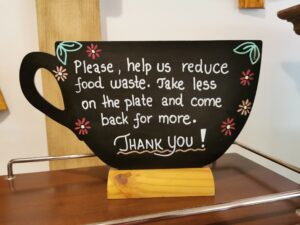
What would you say are the benefits of having expert help on board as part of the certification journey?
Expert guidance and support are crucial when it comes to achieving sustainability certifications for the hospitality industry. Despite the abundance of information available online, it can be challenging to differentiate between genuine best practices and greenwashing techniques. Working with a Mentor in Ribno has been instrumental in helping us navigate this complex landscape over the past 6 years. Their valuable insights and assistance have helped us achieve excellent results and stay on the right track.
Since obtaining our 2-star certification in 2022, we have been working on a new plan to attain a third star. Our Mentor has been instrumental in helping us identify areas that require improvement, particularly in the realm of food. We are currently focusing on optimizing the size of the portions on our buffet and exploring different solutions to determine the most effective approach. However, implementing some of these solutions can be challenging, often requiring time, cooperation with suppliers as well as employee support, and hiring in this industry can be quite tricky. Nonetheless, we always manage to find a way to implement our ideas by making necessary adjustments.
We are also striving to incorporate more sustainably sourced ingredients into our meal offerings. These are just two of the challenges we are currently addressing with the guidance of our Mentors to achieve our third star certification.
Furthermore, we have implemented a sustainable solution to manage our food waste. We use it as fertilizer for many of our plants on the property.
What actions did you put into place to achieve 30% decrease in energy and water consumption?
First, we unplugged the minibars from all the rooms. New communication material has been developed to inform guests that they can request at any time, directly at reception, general use items (toothbrush, toothpaste, slippers, sewing kit, shoe polish, etc.), which are part of the compulsory equipment in four-star hotels. You can imagine the impact of this action on our monthly consumption.
When we purchased the hotel, it was quite dated, and we carried out some renovation work to optimize utility consumption. We replaced the windows, and our heating system now comes from local and natural resources. Wastewater is measured and reused when possible to water all the plants we have on the property. We also communicate to guests in their rooms about the importance of resource consumption, with messages like “don’t take a shower longer than 5 minutes,” “close the AC and windows when you leave the room,” and “be mindful about the light”. In this regard, our guests have been our best allies and supporters.
Did you change the way you onboard and train new staff new staff through your certification journey?
When we bring on a new team member, we always make sure to explain our philosophy and share our expectations for everyone working here. As one of the first practical exercises during onboarding, we ask new team members to sort a selection of waste into the appropriate separate collection bins. If needed, we provide clarification on which waste type should go into which bin. Our experienced staff is always available to support new team members and answer any questions that may arise during this exercise. They are our best zero waste ambassadors.
What are the top 3 benefits for a business when becoming certified?
First and foremost, it is crucial that we save and respect our planet.
Secondly, only measurements and analysis can demonstrate whether we are making progress. The Zero Waste Certification provides the necessary framework. You should begin taking measurements at the beginning of your journey, with the goal that 90% of your waste must be separated. For mixed waste bins, you should limit the maximum to 10%.
Measurements are the only way to determine the effectiveness of your solutions. Allow me to give you an excellent example. Before Covid-19, we had a group of guests from Asia who came to stay with us. They had breakfast and dinner at our hotel’s buffet. With the measurements, we discovered instantly that when we hosted these groups, we recorded considerably more food waste than usual. We began to suspect that maybe our proposed food style was not to their liking. To investigate this further, we contacted the travel agencies responsible for these group bookings and simply asked if their customers had any specific dietary preferences we could accommodate and proposed an alternative plate serving. Following their feedback, we implemented an adapted menu, and we were able to reduce our food waste numbers to the levels they were at before these groups visited us.
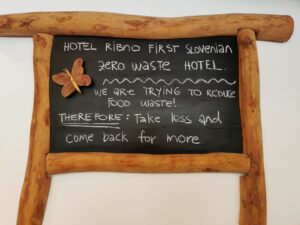
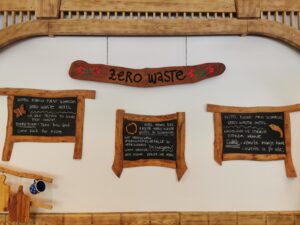
Thirdly, it is important to stay on a zero waste path that never really ends. You have to keep on trying all the time in order to get good results. And recognition is essential. We have received a lot of media attention globally and within our sector, particularly as the pioneers of the certification program. We are now being visited by people from all over Europe to see our practices and how we deal with our zero waste approach.
If you could give one piece of advice to a hotel considering a Zero Waste Business Certification, what would it be?
Mission Zero Academy and its mentor help is a great support to start your zero waste journey.
If you decide to pursue this certification, the criteria provide a solid framework to begin with. They will also help you stand out from a sustainability perspective, giving you added credibility.
How did you involve your community in your project?
In Bled, Slovenia, all the communities have been working towards sustainability as a team. It’s like a chain where everyone is working together towards a common goal. We don’t face any significant barriers between our efforts and the waste management systems that the municipality has in place, and we depend on them.
What innovative solution are you developing to go further and unlock a third star in your certification?
In Ribno, what sets us apart is our in-house production of furniture. We collect wood waste from our production and work alongside the Pulp and Paper Institute to create paper. We’ve developed a paper for printers to use in our office and have also made toys, notebooks, memory games, and other items to be sold at our gift shop soon. We’re planning to launch these products at the beginning of summer, and we’re excited about it. Our goal is to sell locally made and homemade items at our shop. 
Regarding zero waste, many people think of high-tech solutions, but we believe that asking ourselves how our grandparents dealt with waste is the right approach. By prioritizing reuse over disposal, we can make the world a more beautiful and waste-free place. While policies may not always align with our values, we can take steps within our organization to make positive changes.
When we first started six years ago, few people were aware of the zero-waste concept. Now, we hope to inspire other organizations and individuals to join us in our journey towards sustainability.

